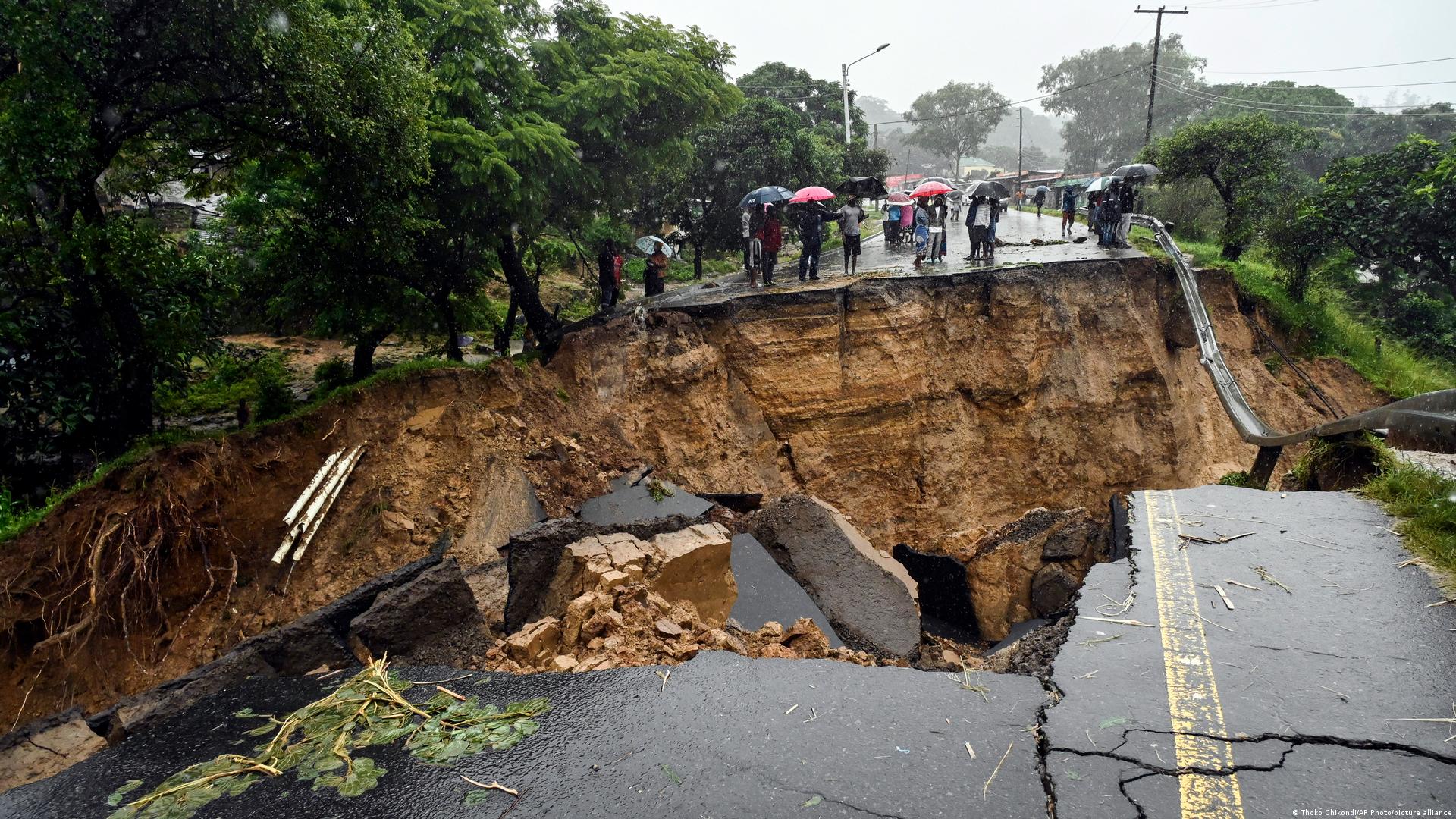The National Construction Industry Council (NCIC) joins all Malawians of good will as well as cooperating partners in condoling His Excellency the President, Dr. Lazarus McCarthy Chakwera, affected families and the entire citizenry on the huge loss of life and property due to the devastating Cyclone Freddy impact. NCIC is cognizance that the loss and suffering caused by the cyclone is immeasurable and unprecedented and requires concerted efforts under the Presidential call of ‘Tigwirane Manja’ to mitigate its impact.
Our initial response was a donation of assorted food stuffs which were delivered to Naotcha Camp on the 16th of March 2023. However, as a regulator of the Construction Industry in Malawi, we are also very concerned by the impact that the cyclone has caused on infrastructure, making roads impassable, hospitals and schools inaccessible and many residential houses destroyed. The road to recovery requires some introspection on several aspects including the way we design, construct, and manage our infrastructure.
A quick assessment of the damage to infrastructure reveals a number of issues that have worsened the impact of the cyclone and other occurrences namely:
- The nature of and the unlikeliness of the areas of occurrence. Mountains erupting and mud slides.
- The state of the infrastructure in terms of quality as well as state of maintenance
- Human activity in terms of encroachment of reserved areas as well public spaces which would be used as relief areas.
- The nature of development in risk prone areas
- Destruction of ground cover as well as massive deforestation.
- Noncompliance to planning and zoning requirements.
- Disaster response has concentrated on humanitarian aspect to mitigate against human suffering which is commendable however we need to go beyond to deal with the factors that worsen the impacts.
NCIC is mindful that no single organization can adequately respond to such disasters which then require all stakeholders in the industry to bang heads in coming up with a road map in terms of recovery in the short term as well as long term, in terms of how we should build a resilient nation. We should question ourselves as to how we design and build our infrastructure so that when there are unforeseeable circumstances, our infrastructure is either maintained or in worst case scenarios where there is damage; the damage should be controlled or predicted, and the recovery systems should be quick.
NCIC is aware that it is impractical to have infrastructure that is immune to damage. This is why designs should reasonably absorb any failure. This is why, as a regulator, we are calling upon all stakeholders to adopt an awareness to risk and environmental impact. As we have seen this year, some circumstances could not reasonably be foreseen. State agencies, such as the Geological Survey, should help map out the country to identify and isolate risk prone areas. This can assist the country to develop in less risky areas or indeed help people re-allocate to safer areas quickly.
As NCIC, we have developed Malawi Infrastructure Delivery Management Standards (MIDMS -2021), which offers comprehensive guidelines and best practices in terms of how infrastructure needs to be conceived, planned, initiated, budgeted, procured, delivered, operated, and maintained in the country to ensure that it is in sound. The citizenry also needs to build a culture which is sensitive to the state of infrastructure which enables it to develop responsiveness to the need for adhering to set guidelines as well as emergencies.
NCIC is therefore advocating for a National Infrastructure Maintenance Strategy which will provide guidance on how we should maintain our national assets, in terms of infrastructure. This, alongside the Malawi Infrastructure Delivery Management Standards, will ensure that the country can have an operation and maintenance sub-system. As a regulator we are eager to lead this process. All these things, put together, will provide guidance in the way we manage our infrastructure so that it is compliant with laws and regulations on physical planning, eco-friendliness as well as responsiveness to early warning systems.
Finally, NCIC is calling upon stakeholders to adhere to quality standards. Our infrastructure planning and designing should incorporate resilience elements which should reasonably anticipate shocks. This should in the end help to safeguard lives and property.
The role of the construction industry in the social-economic development of countries, more especially developing nations like Malawi, cannot be overemphasized. Therefore, the Council is also calling upon all professionals in the construction industry to employ research in the execution of their trade to come up with innovative, safe, and low-cost infrastructure. Research and innovation are pivotal link in the pursuit of an inclusively wealth nation as envisaged by the Malawi 2063 with a citizenry that enjoys sustainable and resilient infrastructure.
The Council will in the short-term convene a Construction Joint Sector Consultative Group to urgently brainstorm on the industry’s recovery roadmap in solidarity with His Excellency the President’s call for coordinated response to the impact of weather induced shocks to infrastructure including Cyclone Freddy.
Signed:
Eng. Gerald T. Khonje
Chief Executive Officer
Download: https://www.ncic.mw/download/statement-by-ncic-on-weather-induced-shocks-on-infrastructure/

